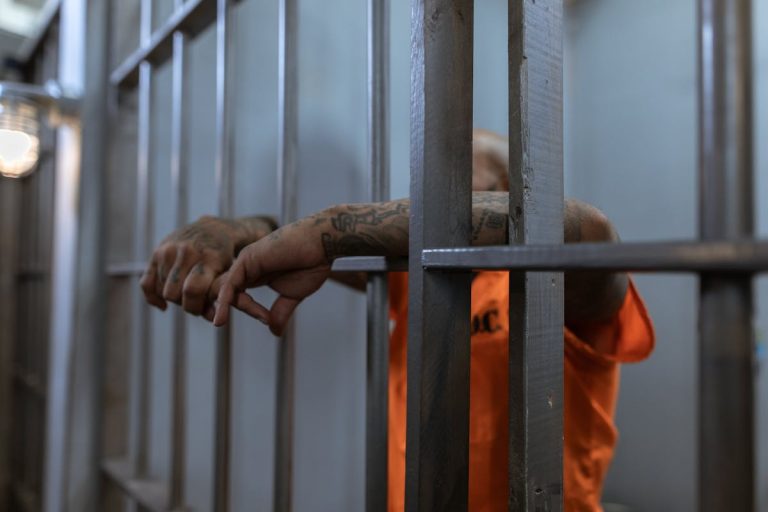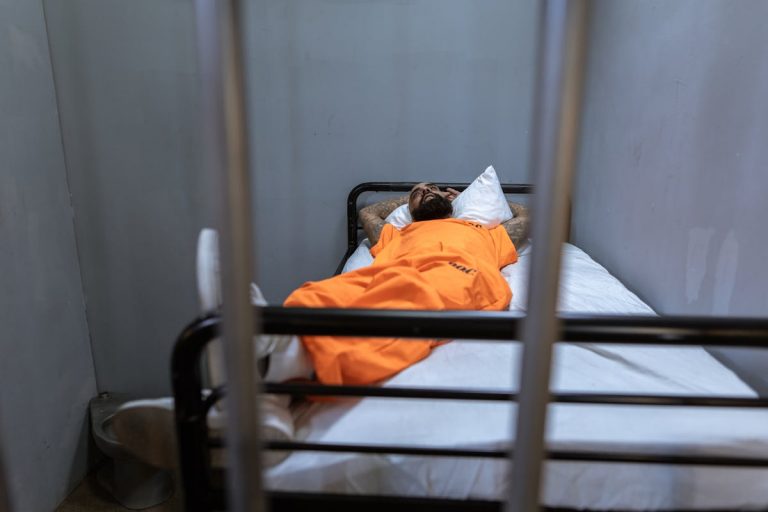Sexual assault on college campuses is a pervasive issue that warrants urgent attention, not only due to its prevalence, but also because of its profound consequences on victims, perpetrators, and the institutions themselves. While the emotional and psychological trauma for the victims tends to be the focal point, it’s equally essential to comprehend the legal implications for the offenders and the effects on the educational institutions involved. Exploring this topic in depth may empower us to develop more effective strategies for prevention, reporting, and support for victims, thereby fostering a safer learning environment for all.
The Prevalence of Campus Sexual Assault
Although it’s a deeply uncomfortable reality to confront, the prevalence of sexual assault on college campuses is a significant concern that cannot be overlooked. Prevalence statistics paint a harrowing picture, with studies indicating that approximately 1 in 5 women and 1 in 20 men are sexually assaulted during their college tenure. The victim demographics reveal that these assaults cut across a wide range of identities, affecting students of all genders, races, and socio-economic backgrounds. The fact that anyone, regardless of their demographic, can become a victim highlights the urgent need for preventative measures and robust support systems. This data also underscores the importance of fostering a campus culture where incidents of sexual assault are reported and survivors feel safe and supported.
Emotional Trauma for Survivors
The emotional trauma survivors endure following a sexual assault on college campuses is profound and multifaceted. The impact on mental health can be significant, leading to deep emotional scars and, in many cases, Post-Traumatic Stress Disorder (PTSD). It is critically important to understand these psychological consequences, not only for the sake of empathy, but also to provide appropriate support and aid in the healing process.
Impact on Mental Health
Emotional upheaval, an often unacknowledged byproduct of sexual assault, can greatly impact survivors’ mental health on college campuses. The psychological toll can be profound, as victims grapple with feelings of violation, fear, and isolation.
- An increase in anxiety and depression is often observed in survivors.
- Self-esteem may plummet, affecting social and academic performance.
- Victims may experience Post Traumatic Stress Disorder (PTSD) symptoms.
- Substance abuse can increase as a coping mechanism.
Solid support systems and survivor advocacy can mitigate these effects, but it’s crucial to understand the deep, long-lasting impact of these traumas. By acknowledging these issues, we can foster a more empathetic, supportive environment for those affected, and work towards preventing such incidents in the future.
Coping With Emotional Scars
Understanding the impact on mental health is just one side of the coin. Survivors often struggle with emotional scars long after the assault, grappling with feelings of guilt, shame, anger, and fear. It’s vital to acknowledge that these emotional scars are a normal response to an abnormal event. Healing strategies play an essential role in helping survivors regain control and restore their emotional well-being. These strategies might include cognitive-behavioral techniques, mindfulness practices, and self-compassion exercises. Concurrently, support networks are invaluable in this journey. They provide a safe space where survivors can share their experiences, receive validation, and find strength in solidarity. Ultimately, with time, professional help, and a supportive environment, the emotional wounds can start to heal.
Post-Traumatic Stress Disorder
Unseen yet profoundly impactful, Post-Traumatic Stress Disorder (PTSD) is a common consequence faced by survivors of sexual assault on college campuses. This aftermath is not just a fleeting emotional disturbance but a severe, ongoing mental health disorder that intrudes on daily life and survivor support.
- PTSD can manifest in various ways including nightmares, flashbacks, and severe anxiety.
- It affects the capacity to lead a normal life by causing emotional numbness and avoidance of people or places that may trigger memories.
- Trauma recovery involves professional help, which might include therapy or medication.
- Survivor support is paramount, as a strong network can aid in managing PTSD symptoms.
Understanding the depth of this emotional trauma is the first step towards fostering an environment that nurtures recovery and supports survivors.

Psychological Effects on Survivors
The psychological aftermath of sexual assault leaves an indelible mark on survivors, often leading to a wide array of mental health issues that can be debilitating. It is imperative to recognize and empathize with the mental distress survivors experience, which includes conditions like depression, anxiety, and post-traumatic stress disorder (PTSD). These disorders can linger for years, complicating healing journeys and making survivor support vital in their recovery process. Survivor support must holistically address psychological trauma, fostering resilience, and facilitating therapeutic interventions. Furthermore, academic institutions have a responsibility to establish robust support systems that are accessible, extensive, and sensitive to the survivors’ needs. This is an essential step towards mitigating these psychological consequences of sexual assault.
Academic Consequences for Survivors
Academic success, a cornerstone of the university experience, can be severely threatened for survivors of sexual assault. The traumatic event often leads to numerous challenges that can hinder their educational progress. It is thus essential for academic institutions to provide academic accommodations and support services.
- Survivors may experience a decrease in concentration and memory, impacting their ability to study effectively.
- Their grades may suffer due to missed classes or inability to complete assignments on time.
- The fear of encountering the perpetrator may lead to avoidance of certain areas on campus, including classrooms and libraries.
- Survivors may need to take a leave of absence, delaying their academic timeline.
Legal Repercussions for Perpetrators
While survivors grapple with academic challenges post-assault, perpetrators of sexual assault on college campuses often face serious legal repercussions. These consequences are enforced through stringent legal penalties and are part of a wider framework of judicial processes. The severity of these penalties can range from fines and community service to imprisonment, depending on the specifics of the case. Legal action can also lead to the perpetrator being listed on a sexual offender registry, which can have lasting impacts on their personal and professional lives. This process serves to hold perpetrators accountable for their actions, while also acting as a deterrent for potential offenders. It’s essential for students to understand these implications, as ignorance of the law does not exempt anyone from facing its consequences.
Impact on Educational Institutions
Sexual assault incidents can send shockwaves throughout the entirety of an educational institution. These traumatic events have direct and indirect consequences that challenge institutional accountability and disrupt campus culture.
- The reputation of the institution may be severely damaged, impacting student enrollment and alumni support.
- These incidents increase legal and financial liabilities for the institution, which may result in budget cuts or staff layoffs.
- It creates a hostile environment, harming the overall campus culture and student morale.
- The institution may face regulatory sanctions or loss of accreditation if they fail to properly address the incident.
These consequences underscore the urgent need for preventative measures and responsive support systems within educational institutions to combat sexual assault.
Societal Ramifications of Campus Assaults
Despite the primary impact being felt within the confines of the educational institutions, the societal implications of campus assaults are far-reaching and profound. The cultural stigma associated with the victims of these heinous acts often leads to victim blaming, which further exacerbates the trauma experienced by the individuals involved. Society’s tendency to scrutinize the behavior of the victim, rather than confront the actions of the perpetrator, contributes to a harmful culture of silence. This not only deters victims from reporting the assault but also perpetuates a cycle of violence. The societal ramifications of campus assaults, consequently, extend beyond the immediate victim, shaping a culture that tacitly supports sexual assault through silence and blame. We must challenge these harmful societal responses to truly address this pervasive issue.
Steps Towards Prevention and Protection
Addressing the issue of sexual assault on college campuses must involve proactive measures such as prevention and protection. This includes implementing effective awareness programs that educate both students and staff about the gravity of sexual assault and the importance of consent. Further, strengthening campus policies to guarantee swift action and justice for victims is also a critical aspect of this process.
Implementing Awareness Programs
A notable number of college students remain uninformed about the dire consequences of sexual assault, underscoring the essential need for awareness programs on campus. These initiatives can create a safer environment by educating students about the gravity of sexual assault, fostering empathy, and encouraging bystander intervention.
Awareness campaigns can include:
- Interactive workshops that foster student engagement and discussion
- Online resources that offer thorough information on sexual assault
- Bystander intervention training sessions to empower students to take action
- Survivor support groups that provide a safe and understanding space for those affected
Implemented effectively, these programs can greatly reduce instances of sexual assault on campus, whilst fostering a culture of respect and safety. The first step towards prevention and protection begins with awareness and understanding.
Strengthening Campus Policies
While awareness programs are a fundamental part of the solution, the importance of strengthening campus policies against sexual assault cannot be overstated. Rigorous policy evaluation is necessary for effective prevention and protection. This involves a thorough review of existing rules and the implementation of stringent measures. Administrative accountability is critical in this process. Campus leaders must guarantee the strict enforcement of these policies, with severe consequences for noncompliance. Considering the gravity of the issue, the university administration needs to be proactive, responsive, and transparent in handling sexual assault cases. The ultimate goal should be to create a safe and supportive campus environment for all students, free from the fear of sexual assault.
Frequently Asked Questions
What Support Services Are Available for Survivors on College Campuses?
College campuses typically offer a range of support services for survivors, including confidential counseling services and peer support groups. These resources provide emotional assistance, advocacy, and education in a safe, supportive environment.
How Can Friends and Family Help a Survivor After an Assault?
Friends and family can greatly aid a survivor by providing emotional support, listening without judgment, and affirming their experiences. Practical assistance may include accompanying them to support services or helping with adjustments to daily routines.
Are There Special Campus Safety Measures for International Students?
Yes, many universities provide international student resources, including safety measures. These often include cultural sensitivity training for campus security and services like 24-hour escort programs, emergency response systems, and education about local laws and customs.
What Are the Rights of the Accused During a Campus Sexual Assault Investigation?
During a campus sexual assault investigation, the accused has the right to due process, which includes fair treatment through the normal judicial system, and the right to legal representation to guarantee the protection of their rights.
Can Survivors Choose to Remain Anonymous When Reporting an Assault?
Yes, survivors can choose to remain anonymous through confidential reporting, which is a crucial part of survivor advocacy. This empowers the survivor while ensuring that the incident is appropriately documented and investigated.





